Search Results
Search
Filter results
Advanced Filters
Your search returned 17 Solutions
-
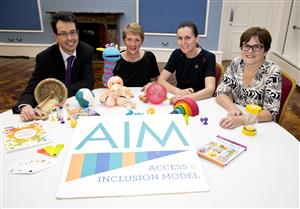
Supporting inclusion of children with disabilities in mainstream preschools
AIM is a non-binding standard for early intervention services addressing children with disabilities. In agreement with the parents, pre-schools can apply for seven different measures for implementation: These include mentoring, support equipment, targeted therapy services as well as personnel and financial assistance.
Irish Department of Children, Equality, Disability, Integration and Youth, The Access and Inclusion Model (AIM), Ireland -
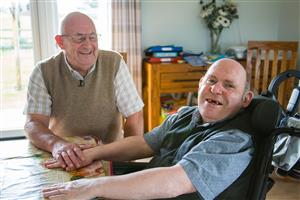
Philanthropy and government combining to create national disability service reform
The Service Reform Fund aims to implement reform in mental health, disability, and homeless services. The SRF awards government grant funding for projects that support persons with disabilities to move out of institutions into a community-based environment. From 2016 to 2018, 16 grants totalling € 7.9 million were awarded.
Genio Trust, Ireland -
SWIFT 9:2012 UNIVERSAL DESIGN FOR ENERGY SUPPLIERS
The "Standard SWiFT 9:2012 Universal Design for Energy Suppliers" and its respective toolkit has been the first standard worldwide, which provides clear guidance for energy suppliers to make their communications accessible. It includes all written, face-to-face, electronic or web-based communication.
Commission for Energy Regulation, Accessible services for energy customers, Ireland -
The Home from Home Apartment offers fully accessible accommodation with aids and appliances to persons with physical and sensory disabilities and their families. It offers independent living in a non-clinical setting for short breaks and general health appointments in Dublin.
Home from Home is a non-clinical setting offering persons with disabilities and their families the chance to stay overnight without having to stay at the hospital. The apartment was designed by persons with disabilities. It offers ceiling track hoists in the bedrooms and provides a fully equipped kitchen and a lounge area.
Muscular Dystrophy UK, Changing Places Consortium, Staying away from home in a non-clinical setting, Ireland -
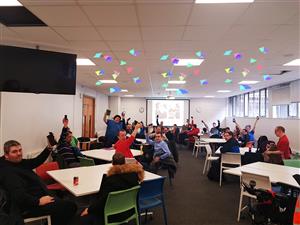
People with intellectual disabilities co-designing digital innovations
The co-design toolkit of Ireland’s Saint John of God Liffey Service (SJOG) enables people with intellectual disabilities to co-create mobile apps that support their daily lives. Launched in 2016, the co-design programme had 70 participants and more than 30 apps being developed by 2022.
Saint John of God Liffey Services, Co-Design Toolkit for Designing Inclusive Apps, Ireland -
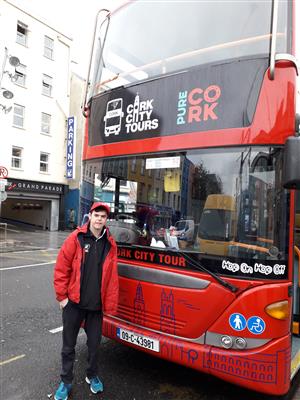
Assigning job coaches for young jobseekers with intellectual disabilities
Job coaches assist young people with an intellectual disability or autism to find paid employment. Job seekers contribute to the planning and delivery of the programme. Between 2018 and 2020, 69 people were registered and 37 people have been placed in supported employment jobs.
COPE Foundation, Ability@Work, Ireland -
Trip Advisor-style accessibility mapping of venues, transport and festivals
Mobility Mojo lists the accessibility of points of interest, events, and transportation for persons with mobility, visual, and hearing impairments in Ireland. Site and app include a mixture of self-uploaded information from establishments and from user reviews. By 2017 over 600 business and over 1000 services were listed.
Mobility Mojo LLC, Ireland -
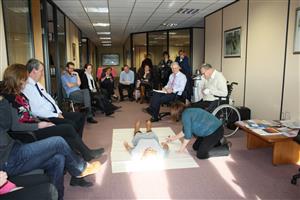
Offering individualised support and sharing lessons learned
Members of the "Next Steps" project provide support to people with intellectual disabilities so that they can live a life of their choosing, especially to move from congregated settings into community-based settings. By 2015, 23 organisations were involved and 242 individuals had participated in the project.
Fedvol - National Federation of Voluntary Bodies, Ireland -
Hospital internships as a strong bridge to the open labour market
Project SEARCH offers young people with intellectual disabilities an internship programme at Naas General Hospital. Over a nine-month period, the interns take part in different real job experiences and then seek employment. Following the first year, all interns who completed the programme found employment in the open labour market.
KARE - Promoting Inclusion for People with Intellectual Disabilities, Project SEARCH, Ireland -
Promoting inclusive business
The Kanchi's Ability Awards, launched in 2004, is a high profile business awards programme, recognising best practice for the inclusion of people with disabilities as employees, customers and members of the community. The Awards targets top 1,000 companies, public organisations and the SME sector.
Kanchi, Promoting inclusive business, Ireland